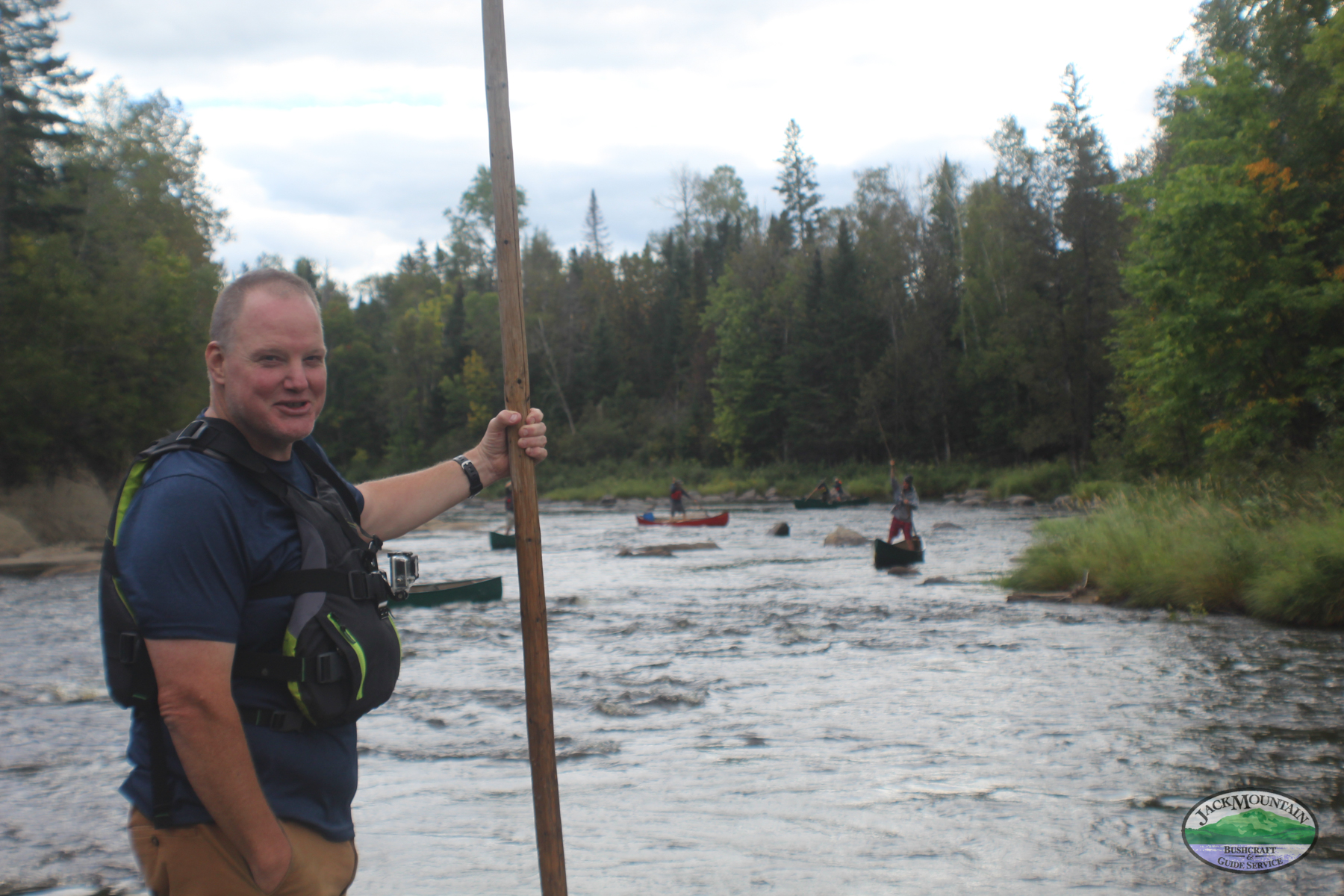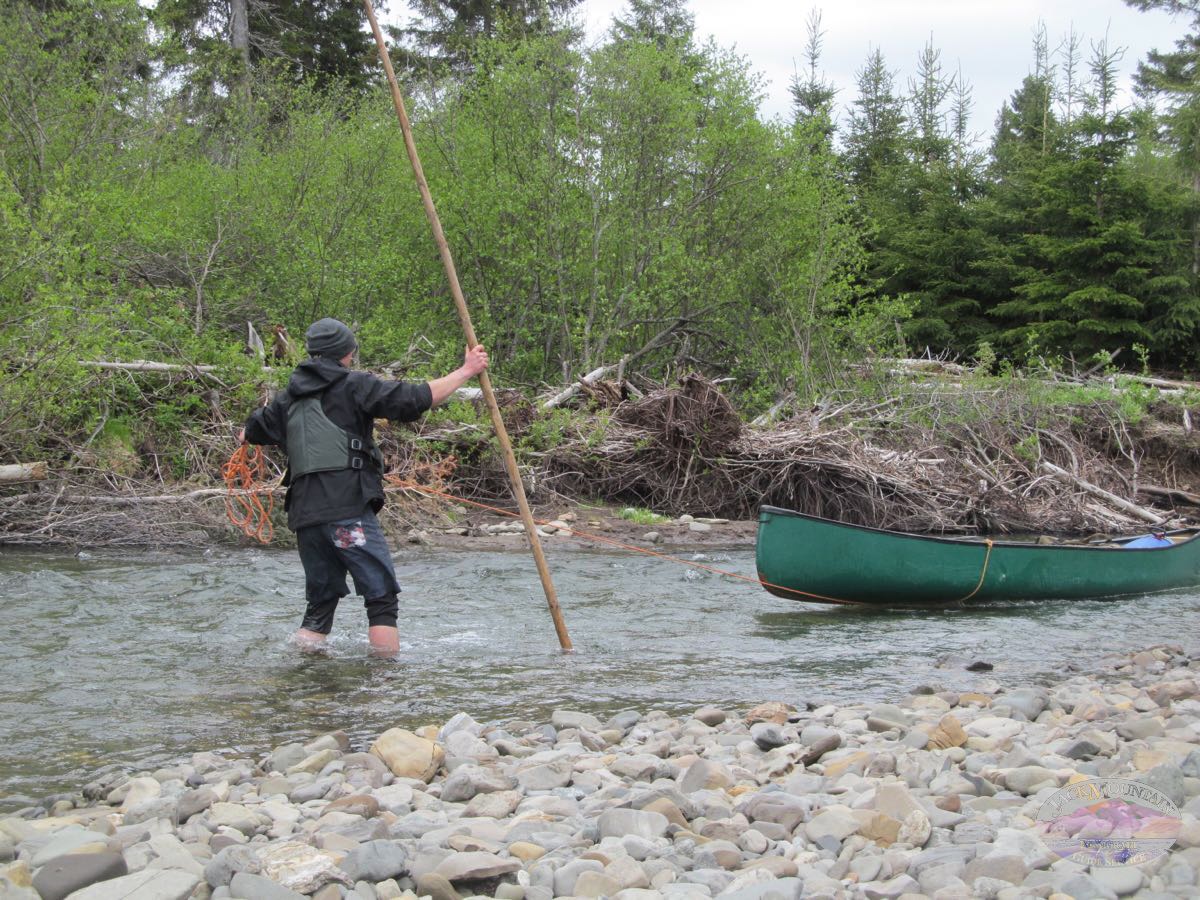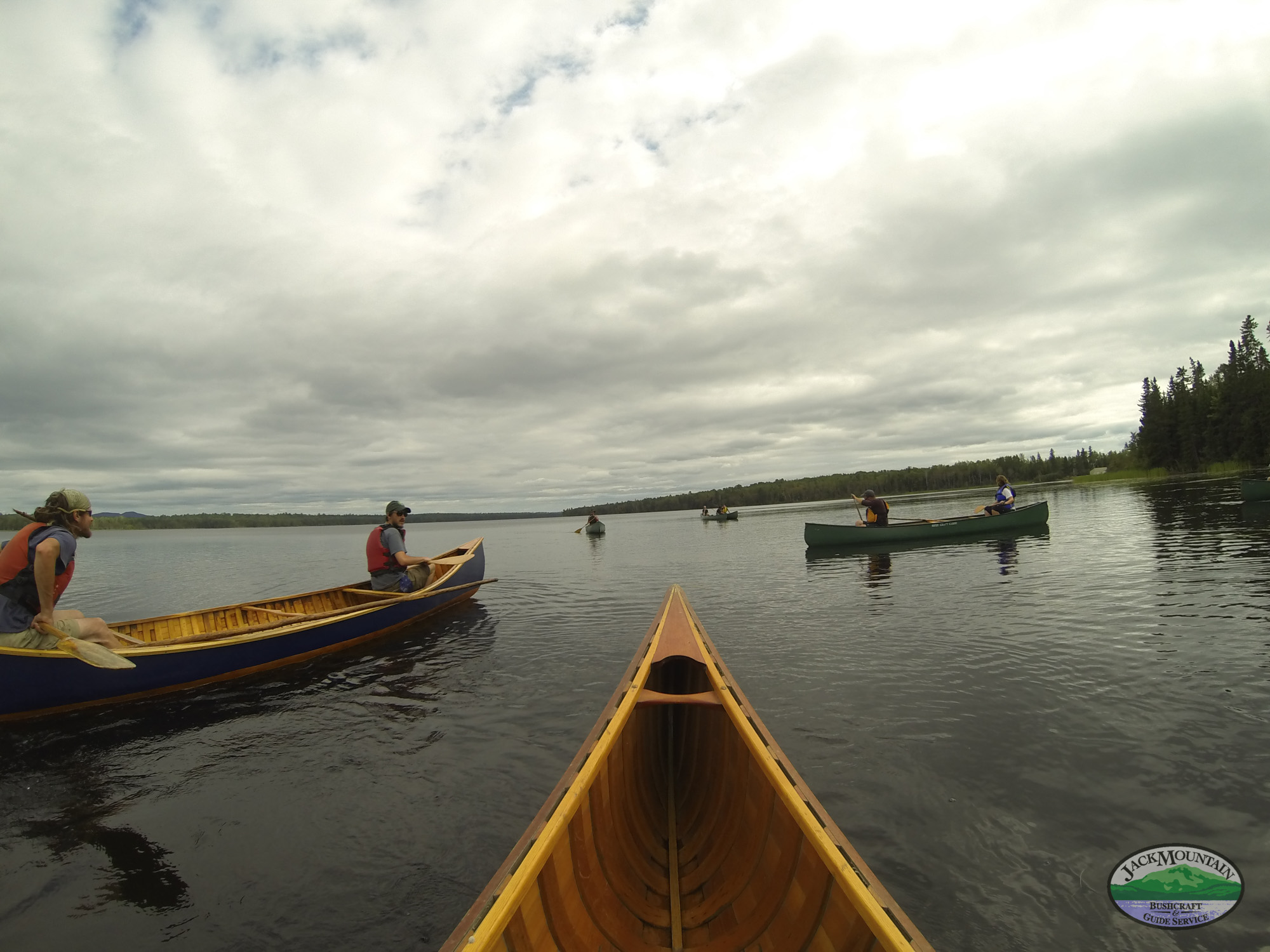We are (slightly) changing the Wilderness Canoe Expedition Semester for 2024. First, we’re adding a new subtitle to reflect what the course is, the Maine Guide Traditional Canoe Expedition Leadership 4-Week Training Course. I considered changing the course name, but we’ve been running this program for a lot of years, and changing the title would entail not only changing it for us, but also changing it with the Veteran’s Administration, our academic partner universities, etc., so we’ll just change the subtitle. I chose the words carefully, because they have specific meanings. Let’s discuss exactly what those meanings are.
Maine Guide Traditional Canoe Expedition Leadership 4-Week Training Course
Maine Guide. I’ve been a Registred Master Maine Guide for 25 years. I consider Maine Guides to be the best in the outdoor industry. This course is designed to train others to become competent, industry-leading Maine Guides. If you are new to this, a Registered Maine Guide is a state license that allows a person to be compensated for leading others in Maine. You have to pass a test to become one. We teach you what you need to pass the test. More here
Traditional Canoe. The modern world of canoeing has become homogenous around paddling downstream or on flat water. But there is much more to the traditional uses of this amazing craft of the wilderness. Much has been forgotten. I see our job as maintaining and passing along those forgotten skills. We focus our instruction on four disciplines of traditional canoeing. These are paddling, poling, lining and carrying (known outside of Maine as portaging). I have done a lot of solo trips on remote rivers. Knowing all four of these disciplines is what has allowed me to do so safely. Paddling you have probably heard of. Poling is lost art of using a long stick to push off on the bottom of the river in order to control the boat. It provides total control in flat or moving water situations, is a challenge to learn and was developed on the rivers of Maine and Quebec into an art form. Lining is tying a rope or ropes to a canoe and pulling it up. or lowering it down, a rapid. It sounds simple, but there is much nuance here and the devil is in the details. Carrying is learning the skills around using tumplines to carry burdens, being organized, and mechanics of moving heavy things. When these four things are combined, it opens the world of remote rivers up to the traveler in a way not accessible to a person who just knows how to paddle.
Expedition Leadership. Outdoor leader and instructor are terms that get thrown around a lot these days, and are often interpreted to mean advanced practitioner. I disagree. The expedition leader need not be the most skilled paddler or poler. But they need to have a solid set of soft skills, planning skills, and experience with understanding what can go wrong and how to manage a group if it does. I consider these skills to be separate from the mechanics of moving your boat. We spend a lot of time discussing this on the course and make use of teachable moments whenever they arise.
4-Week Training Course. How long does it take to learn the basics of a way of life? How much longer does it take to approach mastery? I say frequently that it is all about the reps, or repetitions. So how long does it take to become a qualified wilderness canoe guide? After 25 years and 60 long-term program, I think I have some insight here. The reason we run this as a separate course from our 9-week semester course is so we can focus on different outcome. Our Intended Learning Outcome (ILO) for this course is for participants to be able to plan, pack, and carry out remote wilderness canoe trips. This includes all of the necessary bushcraft skills needed for living a nomadic life on the wild rivers of the north. It includes the technical skills of paddling, poling, lining and carrying. It includes rescue skills in order to manage a backcountry mishap on the water. And it includes the incremental daily improvements needed to build confidence and convince yourself that yes, you can do this. Lastly, it includes a testing process at the end of the course to hold students accountable to the standards we set forth. Those who successfully complete the course earn our respect, and our Engagé certification.
In addition to the new subtitle, there will be change to how we run the course. Back in the day it consisted of two long trips. While we covered a lot of miles and had a great time doing so, with the focus on miles we didn’t cover as much skill development as I would have liked. So we’re changing things a bit for 2024. Specifically, we’re changing week 4.

2024 Course Breakdown.
Week 1: Immersion. We’ll be working on poling and paddling daily at the field school. We’ve developed a nice progression of increasingly challenging local water to get people up to speed the fastest way we know how. We’ll also be covering the bushcraft essentials needed to live life out on the river. Lastly, we’ll be learning all about packing and provisioning for an expedition, making menus, learning about campfire cooking and more. To sum up week one, skill building and getting ready would suffice.
Weeks 2-3: Expedition. This is when we take to the waterways and cover some ground. Making miles every day, working on skills, practicing paddle strokes, poling maneuvers, canoe rescue, cooking over a fire, etc. The days are long and full with the timeless rhythms of life on remote waterways.
Week 4: Advanced skills and testing. In years past we took a second expedition on week 4. This emphasis on making miles precluded us from covering advanced skills in enough detail to make them stick, and didn’t allow us time for testing on those skills. This year our emphasis will be on practicing those advanced skills until they are second nature, as well as testing students on them.
The course runs from May 5-June 1. We’ll start with the high waters of early spring, and be off the water just as the bugs get bad (and the fishing gets good). More info on the course is here.
So maybe you’re interested in training to become an outdoor industry leader. Maybe you want to spend four weeks off the grid and learn a new sport. Maybe you’re planning a remote expedition in the future and want to get your skills up to the standard where you could do it safely. There are many reasons people have made their way to Jack Mountain over the past 25 years. If you’re interested, get in touch as only a few spots remain for 2024.










Comments on this entry are closed.
This is an amazing course where you get to “unplug” from society and immerse yourself in some of the most beautiful wilderness and waterways in the country.